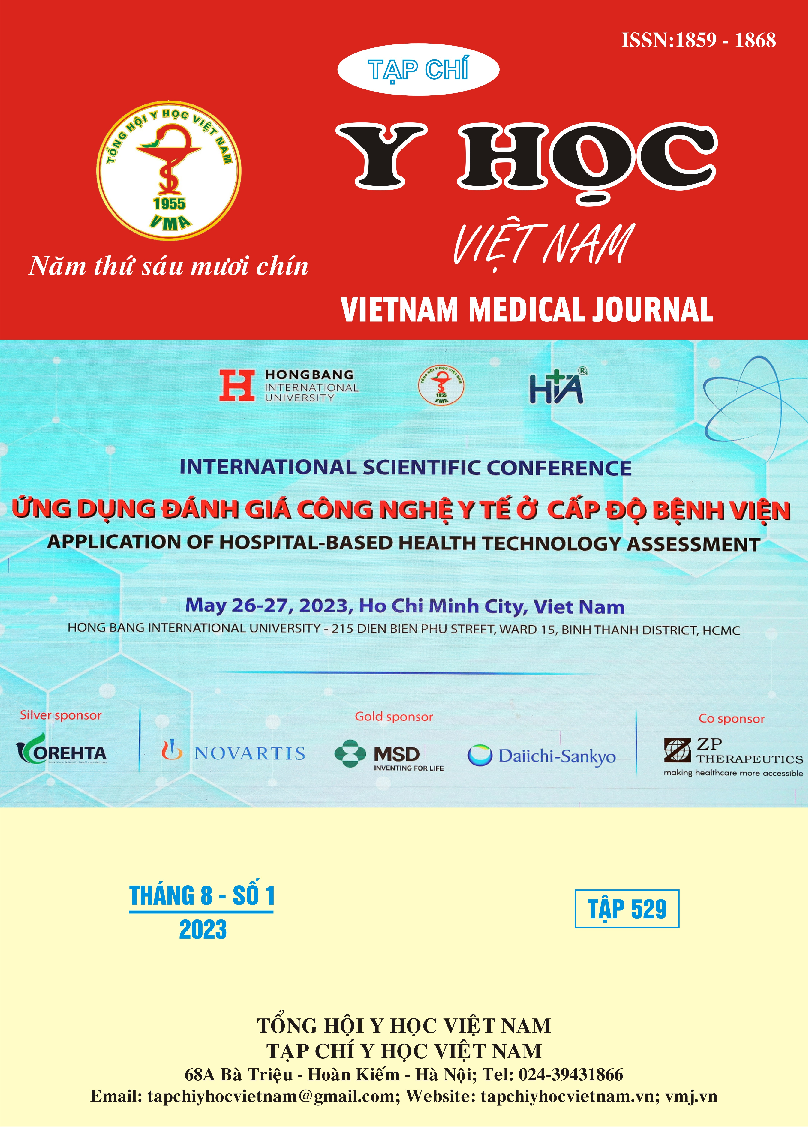ABSTRACT SURVEY OF KNOWLEDGE AND ATTITUDE OF STUDENTS QUANG TRUNG HIGH SCHOOL, HA DONG DISTRICT, HANOI
Main Article Content
Abstract
Nowadays, adolescents tend to approach sex life earlier, on the other hand, due to the rampant introduction of morbid products, changing the concept of living according to the trend open-minded and living more open-minded, they are facing a lot of problems related to reproductive health such as early pregnancy, unwanted pregnancy, unsafe abortion, and sexually transmitted diseases. Methods and subjects: Prospective, descriptive, cross-sectional study. In this research, we selected a total sample of 689 adolescents from Quang Trung High School in Ha Dong District, Hanoi. Research results: While the percentage of students with good knowledge of contraception accounted for 31.9%, the data of students with insufficient knowledge is high, at 68.1%. The figure of students with good attitudes about contraception accounted for 65.5%. Students with bad s accounted for 34.5% of the total. Some factors related to knowledge and attitudes about contraception Six independent factors affect knowledge about contraception Student's contraception: Gender (OR = 3.75), academic performance (OR = 3.18), mother's occupation (OR =1.79), receiving information from parents (OR = 3.27), school (OR = 2.57), television (OR = 2.27), In addition, the strongest impact with OR = 3.75 (2.49 – 5.66) is the gender factor. Three independent factors affect students' attitudes about contraception: Gender (OR =1.6), receiving information from school (OR = 1.64), and knowledge (OR = 4.02), in which the element of knowledge about contraception of students has the strongest impact with OR = 4.02 (2.45 – 6.60). Conclusion: The percentage of adolescents with good knowledge about contraception is not highly related to gender factors and especially the reception of information from parents, in coordination with the school. Need to increase the Health communication measures to improve the quality of adolescent reproductive health.
Article Details
Keywords
adolescent, knowledge, and behavior of contraception
References
2. Phát triển văn hóa Việt Nam trong thời kỳ hội nhập quốc tế - Trường Đại Học Văn Hóa Nghệ Thuật Quân Đội. Accessed June 30, 2022.
3. Báo cáo chuyên điều tra sức khỏe tâm thần vị thành niên và thanh niên Việt Nam. Hà Nội: Tổng Cục Dân Số-KHHG\DJ. Published online 2010.
4. Quyết định 5914/QĐ-BYT 2021. Đề án Chăm sóc sức khỏe sinh sản vị thành niên thanh niên. Accessed June 29, 2022.
5. Đỗ Đức Văn (2013), Nghiên cứu kiến thức, thái độ, thực hành về tránh thai và bệnh lây truyền qua đường tình dục ở học sinh trung học phổ thông thành phố Hải Dương năm 2013, luận văn thạc sỹ y học, Đại học Y Hà Nội, Hà Nội
6. Trần Thị Bích Hồi và các cộng sự (2015), "Kiến thức về sức khỏe sinh sản của học sinh trường Trung học phổ thông Ngô Sĩ Liên tỉnh Bắc Giang năm 2015", Tạp chị Y học dự phòng. 25(11), tr. 129.
7. Ivanova O, Rai M, Mlahagwa W, et al. A cross-sectional mixed-methods study of sexual and reproductive health knowledge, experiences and access to services among refugee adolescent girls in the Nakivale refugee settlement, Uganda. Reprod Health. 2019;16(1):35. doi:10.1186/ s12978-019-0698-5
8. Dương Thị Anh Đào, Nguyễn Thị Hồng Hạnh. Thực trạng hiểu biết về sức khoẻ sinh sản của học sinh trường Trung học phổ thông Tràng Định huyện Tràng Định, tỉnh Lạng Sơn. Tạp chí Khoa học Trường Đại học Sư phạm Hà Nội: Khoa học Tự nhiên. 2019;(3):149.


